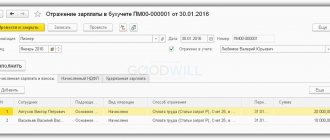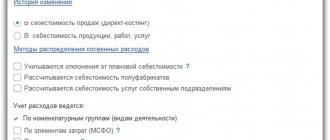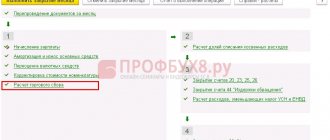A company, as a depositor, can pay contributions to a non-state pension fund in favor of its employees, who will subsequently receive a non-state pension. For the purposes of corporate income taxation, such contributions are taken into account if certain conditions are met and in accordance with the established procedure.
Next, we outline the conditions for accounting for contributions in income tax expenses
Expenses that reduce taxable profit include labor costs. Amounts of contributions to a non-state pension fund can be taken into account among such costs if the following conditions are met:
- non-state pension provision for employees is prescribed in collective or labor agreements (Article 255, paragraph 21 of Article 270 of the Tax Code of the Russian Federation);
- a non-state pension agreement was concluded between the employer company and the non-state pension fund;
- the fund has a license to conduct the relevant type of activity in the Russian Federation;
- a pension scheme is applied that provides for the accounting of contributions in the personal accounts of participants;
- non-state pension agreements must provide for the payment of pensions until the funds in the participant’s personal account are exhausted, but for at least five years or for life (clause 16 of Article 255 of the Tax Code of the Russian Federation);
- the employee has reached the pension grounds provided for by the legislation of the Russian Federation.
If at least one of the listed conditions is not met, the company will not be able to take contributions into account when taxing profits (clause 7 of Article 270 of the Tax Code of the Russian Federation).
In addition, the income tax base is not reduced by the amount of contributions to NPFs transferred for persons who are not employees of the company, for example:
- for dismissed workers, including participants of pre-retirement age who have been reduced in number or staff, who receive a pension on the proposal of the employment service authorities;
- for family members of employees and other persons not connected with the enterprise by an employment contract.
Rules of recognition
Contributions are recognized as expenses in the period in which funds are transferred to pay for them.
Let’s assume that, under the terms of a non-state pension agreement concluded for a period of more than one reporting period, the contribution is paid in a one-time payment. The firm must then recognize the expenses on a straight-line basis over the life of the agreement. This is done in proportion to the number of calendar days the contract is valid in the reporting period.
If the company transfers the payment under such an agreement in installments, then the costs for each payment must reflect:
- evenly over the period corresponding to the period of payment of contributions (year, half-year, quarter, month);
- in proportion to the number of calendar days of the agreement in the reporting period (clause 6 of Article 272 of the Tax Code of the Russian Federation).
GLAVBUKH-INFO
MINISTRY OF FINANCE OF THE RUSSIAN FEDERATIONLETTER dated May 30, 2014 N 03-04-06/26072
The Department of Tax and Customs Tariff Policy reviewed letters on issues of refund of personal income tax in accordance with the “Resolution” of the Constitutional Court of the Russian Federation dated December 25, 2012 N 33-P and reports the following. In accordance with the provisions of “Article 213.1” of the Tax Code of the Russian Federation (hereinafter referred to as the Code), introduced by Federal “Law” dated December 29, 2004 N 204-FZ “On Amendments to Part Two of the Tax Code of the Russian Federation”, when determining the tax base for the tax for the income of individuals, the amounts of pensions paid to individuals under non-state pension agreements concluded by organizations and other employers with appropriately licensed Russian non-state pension funds are taken into account, and the amount of pension contributions under these agreements is not taken into account. According to the “Resolution” of the Constitutional Court of the Russian Federation dated December 25, 2012 N 33-P, the provisions of “Article 213.1” of the Code are recognized as inconsistent with the Constitution of the Russian Federation, its Articles 19 (“parts 1” and “2”) and “57”, to the extent , in which they allow the possibility of taxing the income of individuals on pension payments under non-state pension agreements, under which pension contributions in the interests of individuals before January 1, 2005 were made by the employer to a non-state pension fund with the withholding and payment of this tax. The said “Resolution” determined that, pending amendments to legislation arising from this Resolution, when making pension payments to individuals under non-state pension agreements, pension contributions for which were made to non-state pension funds for these individuals from the funds of employers up to 1 January 2005 with the withholding and payment of personal income tax, this tax on pension payments should not be withheld and paid. At the same time, we inform you that the draft law N 199052-6, prepared in pursuance of the above-mentioned “Resolution” of the Constitutional Court of the Russian Federation, “On Amendments to Article 78 of Part One and Part Two of the Tax Code of the Russian Federation,” was adopted in the second reading on May 23, 2014. This “draft bill” provides for the functions of refunding personal income tax withheld from pension amounts to individuals paid under non-state pension agreements concluded by organizations and other employers with appropriately licensed Russian non-state pension funds, pension contributions for which are up to 1 January 2005 were contributed by the employer to these funds with the withholding and payment of personal income tax being the responsibility of the tax authorities. At the same time, we inform you that in cases where insurance premiums under non-state pension agreements concluded by organizations and other employers with appropriately licensed Russian non-state pension funds before January 1, 2005, before this date were not paid in full at the expense of organizations and other employers , were not considered by the Constitutional Court of the Russian Federation. In connection with the above, the amounts of pensions under such agreements are subject to personal income tax in the manner established by the Code.
Deputy Director of the Department of Tax and Customs Tariff Policy R.A. SAHAKYAN
30.05.2014
| Next > |
Considerable amount of contributions
Contributions under non-state pension agreements are taken into account for profit tax purposes in a limited amount.
To do this, determine the total amount of contributions and payments paid:
- in accordance with the Federal Law “On additional insurance contributions for the funded part of the labor pension and state support for the formation of pension savings”;
- under long-term life insurance contracts for employees, voluntary pension insurance and (or) non-state pension provision for employees.
It is taken into account for profit tax purposes in an amount not exceeding 12 percent of the amount of labor costs (clause 16 of Article 255 of the Tax Code of the Russian Federation).
The basis for calculating the maximum amount of expenses is determined by the cumulative total from the beginning of the tax period. In this case, the duration of the agreement in the calendar year starting from the date of its entry into force is taken into account.
When calculating this maximum amount, labor costs do not include the amounts of payments (contributions) paid in accordance with paragraph 16 of Article 255 of the Tax Code of the Russian Federation.
1. Good afternoon, dear auditors! Our pig farm received a prize from the regional budget as the winner of a livestock breeding competition. Should we calculate it, withhold personal income tax and issue it? Should contributions to funds be assessed or not? If not taxed, then what to refer to?
Best regards, Chief Accountant
OJSC "Borisovskoye" G.V. Voronova
The Tax Code of the Russian Federation contains a list of income from which personal income tax is not withheld.
So, according to paragraph 28 of Art. 217 of the Tax Code of the Russian Federation exempts from personal income tax income not exceeding 4,000 rubles received during the tax period, including:
— from the cost of gifts to taxpayers from organizations and individual entrepreneurs;
- from the value of prizes in cash and in kind received by taxpayers at competitions and competitions held in accordance with decisions of the Government of the Russian Federation, legislative (representative) bodies of state power or representative bodies of local government.
Thus, the premium paid to the winner of a livestock breeding competition is exempt from personal income tax in amounts not exceeding 4,000 rubles if the said competition is held in accordance with decisions of the Government of the Russian Federation, legislative (representative) bodies of state power or representative bodies of local self-government.
To the extent of this excess, the premium is subject to personal income tax at a tax rate of 13 percent established by clause 1 of Art. 224 Tax Code of the Russian Federation.
In accordance with paragraphs 1 and 2 of Art. 226 of the Tax Code of the Russian Federation - Russian organizations from which or as a result of relations with which the taxpayer received income, with the exception of income in respect of which the calculation of amounts and payment of tax are carried out in accordance with Art. 214.3, 214.4, 214.5, 214.6, 226.1, 227 and 228 of the Tax Code of the Russian Federation, are required to calculate, withhold from the taxpayer and pay the amount of tax calculated in accordance with Art. 224 Tax Code of the Russian Federation. The specified Russian organizations are tax agents.
Clause 2 of Art. 230 of the Tax Code of the Russian Federation, tax agents are required to submit to the tax authority at the place of their registration information about the income of individuals for the expired tax period and the amounts of taxes accrued, withheld and transferred to the budget system of the Russian Federation.
In this case, the tax agent - the source of payment of income in the form of a bonus for participation in competitions - is the Ministry of Agriculture, it was it that was obliged to withhold personal income tax.
If during the actual payment of income the tax agent did not withhold personal income tax, the taxpayer, in accordance with sub. 4 paragraphs 1 art. 228 of the Tax Code of the Russian Federation, is obliged to independently calculate the amount of personal income tax on the specified income, submit the corresponding tax return at the place of registration and pay the tax.
Bonuses for participation in competitions, paid at the expense of the regional budget based on the results of harvesting, for the Day of Livestock Breeders, are not remuneration for the employee for the performance of his labor duties, are not an incentive or compensatory payment, an element of remuneration, are not guaranteed by labor or collective agreements, were received an individual for winning a competition organized by the district administration (FAS of the West Siberian District in Resolution No. A46-12587/2011 dated July 25, 2012).
A similar position is set out in the Resolution of the FAS of the Volga District dated April 29, 2014 No. A65-15922/2013, FAS of the Ural District dated May 16, 2014 No. F09-2252/14).
In our opinion, the payment by an organization to an employee of a cash bonus for winning a competition is not in itself a payment made within the framework of labor relations, since the specified amount of money was initially transferred to the organization’s bank account by the organizer of the bonus for winning a competition for an employee of this organization, the payment This award was not conditional on the employee’s performance of work duties, but on his victory in a competition organized by a third party.
From the above it follows that the cash premium indicated in the text of the question is not subject to insurance premiums.
At the same time, the Ministry of Labor of Russia in Letters dated 03/04/2014 No. 17-4/ОOG-136, dated 09/02/2014 No. 17-3/B-415, analyzing a similar situation, came to the conclusion that the bonus for winning the competition, paid to an employee of an organization whose source of funding is the organizer of the competition, who transferred this bonus to the account of the employing organization, is subject to insurance contributions in the generally established manner.
2. Hello, dear editors of the magazine “Assistant to the Rural Accountant”. I am interested in the following question: under the contract for the provision of individual entrepreneur services, due to the fact that a bank account was not opened, the payment was made to the entrepreneur himself on a personal card, there is his letter. The pension fund wants to accrue contributions for this amount. Is this justified?
Sincerely, JSC "Muromskoye"
senior accountant of the settlement group
Mernz L.O.
An individual entrepreneur has the right to receive payment for services provided on his personal card. Tax legislation does not limit entrepreneurs in the forms of payment. However, there is one condition: the existence of an account used for settlements with clients must be notified to the tax inspectorate and the Pension Fund of the Russian Federation within seven days from the date of use of this account (clause 1, clause 2, article 23 of the Tax Code of the Russian Federation). The Ministry of Finance of Russia adheres to a similar opinion in its Letter No. 03-11-05/318 dated December 30, 2008, and Letter No. ED-3-3/ [email protected] and Taxes dated March 6, 2013 . Otherwise, a fine may be imposed.
Thus, tax legislation does not establish sanctions for the use of a personal account by an entrepreneur. However, such use will create confusion in determining the income and expenses of an entrepreneur, which may lead to sanctions from the tax office. Similarly, claims may arise from the pension fund.
Therefore, it is advisable for individual entrepreneurs to open a new card account and use it for payments specifically related to business activities.
In order for the inspection authorities not to recognize transfers as remuneration to an individual under a civil contract, a number of conditions must be met - the individual must be registered as an individual entrepreneur, a correctly drawn up agreement with him, copies of the OGRNIP and TIN of the entrepreneur in the accounting department of the paying organization, correctly indicated purpose of payment in the payment order for transfer (indicating the name of the agreement, number, date or invoice for payment), monthly signed certificates of work performed (services rendered).
3. Good afternoon, dear auditors. I enjoy reading your magazine, thank you very much. I am the individual head of a peasant farm and keep records myself. The following question arose: should the individual head of a peasant farm pay personal income tax on amounts that are withdrawn from the current account for the personal needs of the individual entrepreneur? I am a payer of the Unified Agricultural Tax.
Thank you in advance. Individual Entrepreneur Head of Peasant Farm
Petrenko A.K.
All income an individual entrepreneur receives from his activities is his personal funds, including cash. He can dispose of them at his own discretion, since an individual entrepreneur is not a legal entity and his property is not legally delimited (clause 1 of article 23, clause 24, clause 1 of article 861 of the Civil Code of the Russian Federation).
If necessary, an entrepreneur can withdraw funds from the current account for any needs without restrictions. There is no need to prepare an advance report on the amounts spent on personal needs. Similar explanations are given in the Letter of the Bank of Russia dated August 2, 2012 No. 29-1-2/5603. In this case, the reason for the withdrawal must be written on the bank receipt - for personal needs.
If an individual entrepreneur using the Unified Agricultural Tax, from his current account, to which income from business activities is received, transferred funds with the purpose of payment “Transfer of own funds” to a bank card to the current account belonging to him, then personal income tax is not subject to payment, since these funds withdrawn from the current account of an individual entrepreneur for transfer to personal needs and no income arises from this operation.
Based on the Letter of the Federal Tax Service of Russia for Moscow dated December 28, 2007 No. 18-12/3/ [email protected], an individual entrepreneur has the right to make independent decisions on the directions of spending the funds remaining at his disposal after taxation.
According to the Letter of the Ministry of Finance of the Russian Federation dated November 25, 2008 No. 03-04-05-01/441, the Russian Federation does not provide for taxation of amounts of funds withdrawn from the current account of an individual entrepreneur for use for personal needs.
4. Good afternoon, dear editors of the magazine “Assistant to the Rural Accountant.” Please help me understand personal income tax. The company employs a woman who has a minor child. She was not married, but the child’s father recognized him as his own, that is, the father is indicated on the birth certificate. They do not live together. Does she have the right to a double tax deduction for personal income tax for a child? Is she a single parent?
Sincerely, accountant
Zarechnoye LLC Lyutinova P.R.
From January 1, 2009, a double tax deduction is provided not to a single parent, but to a single parent (subclause 4, clause 1, article 218 of the Tax Code of the Russian Federation).
There is no legal definition of the concept of “sole parent”. From the literal interpretation of this term it follows that the parent is the only one if the other parent is absent, for example, recognized as missing, declared dead (Letters of the Ministry of Finance of the Russian Federation dated December 3, 2009 No. 03-04-05-01/852, dated October 22, 2009 No. 03 -04-05-01/757, dated 08/18/2009 No. 03-04-05-01/639, dated 07/30/2009 No. 03-04-05-01/596, dated 07/24/2009 No. 03-04-05- 01/588, dated 06/02/2009 No. 03-04-05-01/404).
The parent will be considered the only one even in the case where the paternity of the child is not legally established, for example, there is no record of the father in the birth certificate or the father is indicated according to the mother (Letter of the Federal Tax Service of Russia dated September 17, 2009 No. ШС-22-3/721).
In your case, the child has a father who recognized him as his own. It does not matter that the parents have never been in a registered marriage and do not live together. Therefore, the employee is not the only parent and on this basis does not have the right to a double deduction for personal income tax.
She can receive a double tax deduction only if the child’s father refuses the deduction in her favor (paragraph 10, subparagraph 4, paragraph 1, article 218 of the Tax Code of the Russian Federation).
5. Hello, dear editors of the magazine “Assistant to the Rural Accountant”. I read your magazine with great pleasure. Please tell me how insurance premiums are paid by the head of a peasant farm (legal entity) if he is the only founder?
Thank you very much. Sincerely
accountant of the head of the peasant farm Mironov S.A.
Mironova A.B.
A peasant farm as a legal entity recognizes a voluntary association of citizens on the basis of membership for joint production or other economic activities in the field of agriculture, based on their personal participation and the association of property contributions by members of the peasant (farm) economy (Clause 1, Article 86.1 of the Civil Code of the Russian Federation, Art. 23 Civil Code of the Russian Federation).
By virtue of clause 5 of Art. 23 of the Civil Code of the Russian Federation, the head of a peasant (farm) enterprise can be a citizen registered as an individual entrepreneur. Based on Part 2 of Art. 14 of Law No. 212-FZ, the heads of peasant (farm) households pay the appropriate insurance contributions to the Pension Fund of the Russian Federation and the Federal Compulsory Medical Insurance Fund in a fixed amount for themselves and for each member of the peasant (farm) household. In this case, the fixed amount of the insurance contribution for each corresponding type of compulsory social insurance is determined as the product of the minimum wage established by federal law at the beginning of the financial year for which insurance premiums are paid, the tariff of insurance contributions to the relevant fund established by Part 2 of Article 12 of Law No. 212 -FZ, increased by 12 times, and the number of all members of the peasant (farm) household, including the head of the peasant (farm) household.
In paragraph 3 of Art. 2 of Law No. 212-FZ, individual entrepreneurs are individuals registered in the prescribed manner and carrying out entrepreneurial activities without forming a legal entity, heads of peasant (farm) households. Individuals carrying out entrepreneurial activities without forming a legal entity, but who have not registered as individual entrepreneurs in violation of the requirements of the civil legislation of the Russian Federation, when performing the duties assigned to them by this Federal Law, do not have the right to refer to the fact that they are not individual entrepreneurs.
In accordance with Part 1 of Art. 14 of Law No. 212-FZ, payers of insurance premiums specified in clause 2, part 1, art. 5 of this Federal Law, pay the corresponding insurance contributions to the Pension Fund of the Russian Federation and the Compulsory Medical Insurance Fund in fixed amounts, determined in accordance with Parts 1.1 and 1.2 of this article.
In Part 1 of Art. 18 of Law No. 212-FZ establishes that payers of insurance premiums are obliged to pay insurance premiums in a timely manner and in full.
Thus, regardless of the form in which the peasant (farm) enterprise is registered - as a legal entity or without the formation of a legal entity - the head of the peasant farm is recognized as the payer of insurance premiums in the manner and amount determined by Law No. 212-FZ for individual entrepreneurs. If a peasant farm is registered as a legal entity, this does not relieve its head from the obligation to pay insurance premiums as an individual entrepreneur (Resolution of the Sixteenth Arbitration Court of Appeal dated June 24, 2013 No. A63-15989/2012, Resolution of the Federal Antimonopoly Service of the North Caucasus District dated September 24, 2013 No. A63-15989/2012).
Thus, if the head of a peasant farm is the only participant and if such a farm operates by forming a legal entity, the head is obliged to pay insurance premiums both as an individual entrepreneur and as a legal entity.
6. Good afternoon! Our organization employs foreign citizens from former Soviet republics. Is it legal to apply a personal income tax rate of 13% when a citizen of the Kyrgyz Republic carries out work on the basis of a civil law contract?
Best regards, Accountant
settlement group of CJSC "Kiprino"
Streltsova M.M.
According to Art. 73 of the Treaty on the Eurasian Economic Union (signed in Astana on May 29, 2014), if one member state, in accordance with its legislation and the provisions of international treaties, has the right to tax the income of a tax resident (person with permanent residence) of another member state in in connection with employment carried out in the first-mentioned Member State, such income is taxed in the first Member State from the first day of employment at the tax rates provided for such income of individuals who are tax residents (residents) of that first State -member.
The provisions of this article apply to the taxation of income in connection with employment of citizens of Member States.
The Kyrgyz Republic is a member of the EAEU (Treaty of Accession of the Kyrgyz Republic to the Treaty on the Eurasian Economic Union dated May 29, 2014).
According to paragraph 1 of Art. 2 of Federal Law No. 115-FZ of July 25, 2002 “On the legal status of foreign citizens in the Russian Federation”, the labor activity of a foreign citizen means the work of a foreign citizen in the Russian Federation on the basis of an employment contract or a civil contract for the performance of work (rendering services).
Accordingly, work for hire on the basis of a civil contract refers to labor activity, therefore, the tax rate for personal income tax based on Art. 224 of the Tax Code of the Russian Federation will be 13%, since the Kyrgyz Republic is a member of the EAEU.
A similar conclusion is stated in Letters of the Ministry of Finance of the Russian Federation dated July 17, 2015 No. 03-08-05/41341, Federal Tax Service of Russia dated April 30, 2015 No. OA-3-17 / [email protected]
7. An employee of the organization, in accordance with Federal Law No. 125-FZ of July 24, 1998 “On compulsory social insurance against accidents at work and occupational diseases,” for the purpose of rehabilitation after an industrial injury, was provided with a voucher for sanatorium treatment for 21 calendar days. In this regard, the employer provided additional leave and paid additional leave.
Should insurance premiums be calculated and personal income tax withheld from the accrued payment for additional leave?
Accountant of the settlement group
OJSC "Obskoe" Roznareva N.O.
In accordance with sub. 3 p. 1 art. 8 of Law No. 125-FZ, insurance coverage is carried out, including in the form of payment of additional expenses associated with the medical, social and professional rehabilitation of the insured in the presence of direct consequences of the insured event, including for medical rehabilitation in organizations providing sanatorium-resort services, including travel packages, including payment for treatment, accommodation and meals for the insured, and, if necessary, payment for travel, accommodation and meals for the person accompanying him, payment for the insured’s vacation (in excess of the annual paid vacation established by the legislation of the Russian Federation) for the entire period of his treatment and travel to and from the place of treatment.
According to sub. 10 paragraph 2 art. 17 of Law No. 125-FZ, the insurer is obliged to provide the insured person who needs treatment for reasons related to the occurrence of an insured event, paid leave for sanatorium treatment (in addition to the annual paid leave established by the legislation of the Russian Federation) for the entire period of treatment and travel to the place of treatment and back.
Payment for such leave is carried out by the policyholder against accrued insurance premiums (clause 7, article 15 of Law No. 125-FZ, clause 10 of the Rules for the accrual, accounting and expenditure of funds for the implementation of compulsory social insurance against industrial accidents and occupational diseases, approved by Government Decree RF dated March 2, 2000 No. 184).
By virtue of Part 1 of Art. 7 of the Federal Law of July 24, 2009 No. 212-FZ, the object of taxation of insurance premiums for organizations recognizes, in particular, payments and other remunerations accrued by payers of insurance premiums in favor of individuals within the framework of labor relations and civil contracts, the subject of which is the performance of work , provision of services.
In this case, the base for calculating insurance premiums is determined as the amount of payments and other remunerations provided for in Part 1 of Art. 7 of Law No. 212-FZ, accrued by payers of insurance premiums for the billing period in favor of individuals, with the exception of the amounts specified in Art. 9 of Law No. 212-FZ.
According to clause 1, part 1, art. 9 of Law No. 212-FZ, state benefits paid in accordance with the legislation of the Russian Federation, legislative acts of the constituent entities of the Russian Federation, decisions of representative bodies of local self-government, including unemployment benefits, as well as benefits and other types of compulsory insurance coverage for compulsory social insurance.
Thus, the amounts of vacation pay paid to an employee in connection with the provision of additional leave for the duration of treatment are recognized as one of the types of compulsory insurance coverage and on this basis are not subject to insurance premiums paid in accordance with Law No. 212-FZ, and insurance premiums from accidents at work and occupational diseases (Appendix to the Letter of the Federal Social Insurance Fund of the Russian Federation dated November 17, 2011 No. 14-03-11/08-13985).
As for personal income tax, according to clause 3 of Art. 217 of the Tax Code of the Russian Federation, all types of compensation payments established by the current legislation of the Russian Federation, legislative acts of the constituent entities of the Russian Federation, decisions of representative bodies of local self-government (within the limits established in accordance with the legislation of the Russian Federation) related to compensation for harm are not subject to taxation (exempt from taxation), caused by injury or other damage to health.
Consequently, payment for additional leave falls under clause 3 of Art. 217 of the Tax Code of the Russian Federation and is not subject to personal income tax.
8. Our agricultural organization often issues loans to its employees. Should an individual pay personal income tax on income in the form of material benefits from using an interest-free loan received in 2014 if its repayment is made in January 2016?
Sincerely, SEC "Taiga"
senior accountant Kolotkova S.N.
Until 2021, the material benefit is determined on the date of payment of interest on the loan (subclause 3, clause 1, Article 223 of the Tax Code of the Russian Federation), and for interest-free loans - on the date of repayment (Letter of the Ministry of Finance of the Russian Federation dated 04.02.2008 No. 03-04-07- 01/21).
If in 2014, 2015 the debt on the interest-free loan was not repaid, income in the form of material benefits subject to taxation by personal income tax does not arise in these tax periods.
From 2021, the date of receipt of income in the form of material benefits from savings on interest is recognized as the last day of each month during the period for which borrowed (credit) funds were provided (new subparagraph 7, paragraph 1, article 223 of the Tax Code of the Russian Federation as amended by the Federal Law dated 02.05.2015 No. 113-FZ “On introducing amendments to parts one and two of the Tax Tax Code of the Russian Federation in order to increase the responsibility of tax agents for non-compliance with the requirements of the legislation on taxes and fees”).
Federal Law No. 113-FZ does not provide for any transitional provisions for debt obligations arising before 2021.
This means that the first date of receipt of income in the form of material benefits from savings on interest for the use of borrowed funds under loan agreements, including interest-free loans issued before 2021, will be January 31, 2016.
Thus, if the loan is repaid before January 31, 2021, then the grounds for paying tax on income in the form of material benefits received from saving on interest for the entire period of using borrowed funds under such a loan agreement have not been established.
9. In 2021, can a tax agent be held liable for submitting false information on Form 2-NDFL if the corresponding information for 2014 was submitted by him in 2015?
Sincerely, JSC "Novator"
Chief accountant Koltsova G.E.
Tax agents are required to submit to the tax authority at the place of their registration information on the income of individuals for the expired tax period and the amounts accrued, withheld and transferred to the budget system of the Russian Federation for this tax period of taxes for each individual annually no later than April 1 of the year following the expired tax period. period. The form, format and procedure for submitting the relevant documents are approved by the Federal Tax Service of Russia (clause 2 of Article 230 of the Tax Code of the Russian Federation).
From January 1, 2021, Federal Law No. 113-FZ dated May 2, 2015 “On amendments to parts one and two of the Tax Code of the Russian Federation in order to increase the responsibility of tax agents for non-compliance with the requirements of the legislation on taxes and fees” introduces Art. 126.1 of the Tax Code of the Russian Federation, which establishes liability for the submission by a tax agent to the tax authority of documents containing false information in the form of a fine of 500 rubles. for each document with false information.
According to paragraph 2 of Art. 5 of the Tax Code of the Russian Federation, acts of legislation on taxes and fees that establish liability for violation of legislation on taxes and fees do not have retroactive force.
Therefore, the provisions of Art. 126.1 of the Tax Code of the Russian Federation on liability can only be applied in relation to tax offenses committed after December 31, 2015, that is, when the corresponding actions of the tax agent to provide false information were committed starting from January 1, 2021 (clause 4 of the Resolution of the Plenum of the Supreme Court of the Russian Federation No. 41, Plenum of the Supreme Arbitration Court of the Russian Federation No. 9 of 06/11/1999 “On some issues related to the entry into force of part one of the Tax Code of the Russian Federation”).
Taking into account the above, if, starting from 2021, the tax authority identifies, based on the results of an on-site tax audit or outside the framework of a tax audit, inaccurate information contained in 2-NDFL certificates submitted by the tax agent before 2021, liability to the tax agent under Art. 126.1 of the Tax Code of the Russian Federation should not be applied.
10. An employee (the spouse of the child’s mother, who is not his natural father) applied to the accounting department of our organization for a standard tax deduction for a child. In order to provide a personal income tax deduction, are we obliged to require from the employee any documents confirming that the child is in his care?
Paramonovo LLC
accounting group accountant Ozolintseva M.L.
The tax deduction for personal income tax for each month of the tax period applies to the parent, spouse of the parent, adoptive parent, guardian, trustee, adoptive parent, spouse of the adoptive parent who supports the child (subclause 4, clause 1, article 218 Tax Code of the Russian Federation).
Therefore, the spouse of the child's mother is eligible to receive the standard tax deduction.
At the same time, the right to receive a standard tax deduction arises for the taxpayer, provided that the taxpayer is a parent (spouse of a parent) and the child is supported by him (this is stated in the Letter of the Federal Tax Service of Russia dated September 17, 2013 No. BS-4-11/16736).
It turns out that the fact that the child is supported by the spouse of the child’s parent (mother) is important when deciding whether to provide the employee with a tax deduction.
As for the set of necessary documents, in order to provide a deduction on the basis of clause 3 of Art. 218 of the Tax Code of the Russian Federation requires an application from the employee and documents confirming his right to the deduction. So, in addition to the application, in this case it is necessary (Letter of the Ministry of Finance of the Russian Federation dated 04/03/2012 No. 03-04-06/8-96):
— a copy of the child’s birth certificate;
- a copy of the passport (with a note on the registration of marriage between the parents) or a copy of the marriage registration certificate.
Also, the Letter of the Ministry of Finance of the Russian Federation dated 04/03/2012 No. 03-04-06/8-96 states that the fact of cohabitation of a spouse with the children of the spouse from the first marriage can be confirmed by a certificate from the place of residence of the relevant housing maintenance organization (Unified Information and Settlement center) or a certificate from the homeowners association, housing or housing construction cooperative, or a certificate from the city, town and rural administration, and can also be established in court.
In addition, a document to confirm the right of the second spouse to receive a standard tax deduction for a child, in particular, can be a written statement from the spouse that the husband actually lives with the child and participates in providing for him (this is indicated in the Letter of the Ministry of Finance of the Russian Federation dated 07.03. 2013 No. 03-04-05/7-195).
Thus, the legislation of the Russian Federation does not oblige in any special way or document to confirm the fact that the child is supported by an employee (who is not the child’s natural father). However, according to letters from the Ministry of Finance of the Russian Federation, the right to deduction is confirmed by a certificate of cohabitation of the child with the parent’s spouse or an application from the child’s parent about cohabitation and the participation of the spouse in providing for the child.
Inclusion of contributions in income
Let’s say an employee for whom the company paid contributions to the NPF quit before retirement. Then the amount of contributions previously included in expenses must be restored (clause 16 of Article 255 of the Tax Code of the Russian Federation).
Paid contributions are included in the income of the period in which changes were made to the non-state pension agreement, or when it was terminated, as well as when its terms were shortened.
The fact that in this case, the recalculation of corporate income tax for past reporting (tax) periods should not be carried out is reported in the letter of the Ministry of Finance of Russia dated April 23, 2008 No. 03-03-06/2/43.
Personal income tax on pensions
Non-state pensions are subject to personal income tax. However, some expenses may be eligible for a tax deduction.
In accordance with paragraph 1.7 of Article 208 of the Tax Code of the Russian Federation, pensions are recognized as income received from Russian sources through payments from Russian organizations. In turn, income is subject to taxation at a rate of 13% (clause 1 of Article 224 of the Tax Code of the Russian Federation).
Is the pension subject to personal income tax? The answer depends on what kind of pension a person receives.
"Pension" personal income tax
Pensions in the Russian Federation can be accumulated either in a state pension fund (including under voluntary insurance contracts for the funded part of a pension) or in a non-state one. The effect of state pension provision is regulated by the laws “On State Pension Security” dated December 15, 2001 No. 166-FZ and “On Insurance Pensions” dated December 28, 2013 No. 400-FZ.
Non-state pension provision is carried out in accordance with the Law “On Non-State Pension Funds” dated 05/07/1998 No. 75-FZ (hereinafter referred to as Law No. 75-FZ).
Based on this, the Tax Code of the Russian Federation provides for different procedures for taxation of pensions formed by transferring contributions to state or non-state funds.
State-supported pensions are not subject to personal income tax, with the exception of payments if an individual has voluntary insurance of the funded part of the pension (clause 2 of Article 217 of the Tax Code of the Russian Federation).
But any citizen can enter into a pension agreement with a non-state pension fund (NPF), which operates on the basis of a license. Under this agreement, the citizen (also known as the investor) undertakes to pay pension contributions, and the fund - to pay a non-state pension when pension grounds arise (Article 3 of Law No. 75-FZ).
This pension is additional to the state pension. It is also not subject to taxation, but provided that the agreement is concluded by the investor in his own favor, and he also transfers contributions (paragraph 4, paragraph 1, article 213 of the Tax Code of the Russian Federation).
But if an organization has concluded a pension agreement in favor of its employees and, on its own initiative, transfers pension contributions to the employees’ personal accounts in the NPF from its own funds, then the situation is different. Contributions are not subject to personal income tax (paragraph 5, clause 1, article 213.1 of the Tax Code of the Russian Federation). But when workers retire, they receive an additional non-state pension minus personal income tax (paragraph 2, clause 2, article 213.1 of the Tax Code of the Russian Federation).
In this case, the NPF is a tax agent in relation to the investor. It calculates, withholds and transfers tax on pension payments to the budget (clause 2 of Article 226 of the Tax Code of the Russian Federation).
In the same way, taxation of contributions and payments under agreements with non-state pension funds concluded by individuals in favor of other individuals is provided. Personal income tax contributions are not subject to personal income tax (paragraph 6, paragraph 1, article 213.1 of the Tax Code of the Russian Federation), but you will need to pay personal income tax on pensions (paragraph 3, paragraph 2, article 213.1 of the Tax Code of the Russian Federation).
"Pension" deduction
“Preferential” expenses include paid pension contributions under non-state pension agreements concluded with non-state pension funds or insurance organizations for a period of at least five years (clause 4, clause 1, article 219 of the Tax Code of the Russian Federation).
In addition to contributions under pension and insurance contracts, you can deduct the payment of additional insurance contributions for the funded part of the labor pension (clause 5, clause 1, article 219 of the Tax Code of the Russian Federation).
You can apply for a deduction if the insured are family members or close relatives of the taxpayer, and he pays insurance premiums for them at his own expense. In accordance with the Family Code of the Russian Federation, family members and close relatives include:
- spouse;
- children, including adopted children;
- parents, including adoptive parents;
- grandparents;
- grandchildren;
- brothers and sisters, including half-brothers (paragraphs 4-5 of Article 14 of the Family Code of the Russian Federation).
An insurance or pension agreement can be concluded for any amount. However, only the actual amount of insurance premiums paid for the year can be deducted, but not more than 120,000 rubles. Moreover, in relation to all social tax deductions in aggregate (paragraph 3, paragraph 2, article 219 of the Tax Code of the Russian Federation). For example, if during the reporting year a person received a tax deduction for education in the amount of 50,000 rubles, then he can claim no more than 70,000 rubles (120,000 - 50,000) as a deduction for pension insurance.
Example. Tax deduction
In 2021, Semenov paid insurance premiums under a voluntary pension insurance agreement in the amount of 60,000 rubles. and paid for treatment for 20,000 rubles. At the end of the year, Semenov can receive a tax deduction in the amount of 10,400 rubles. ((RUB 60,000 + RUB 20,000) x 13%).
Accounting for contributions to non-state pension funds when applying the simplified tax system and unified agricultural tax
A taxpayer of the simplified tax system with the corresponding object of taxation can reduce the income received by labor costs. Contributions to non-state pension funds are subject to accounting when using the simplified taxation system, if the conditions of Article 255 of the Tax Code of the Russian Federation are met, including the 12 percent limit.
When determining the object of taxation, the Unified Agricultural Tax taxpayer reduces the income received by labor costs.
Thus, those who pay the Unified Agricultural Tax also have the right to accept contributions to the NPF as expenses, of course, subject to the conditions of the 12 percent limit.
Commented letter: Letter of the Ministry of Finance of the Russian Federation No. 03-03-06/1/50818 dated November 25, 2013 “Income tax: accounting for contributions to non-state funds”
Tax consultant P.R. Sidorov
, for the magazine “Normative Acts”
Income tax from A to Z
The “Income Tax from A to Z” guide contains everything you need to know about paying income tax: an analysis of common tax errors, interpretations of controversial aspects of legislation, and an explanation of the positions taken by tax authorities. Find out more >>









